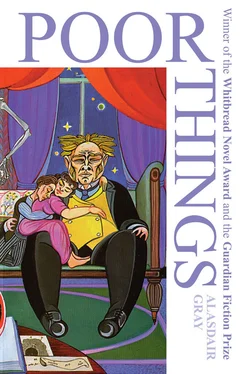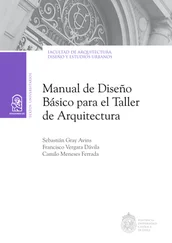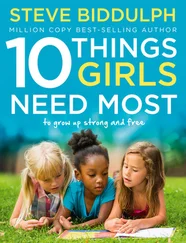“Did you know that eight out of ten Irish lived on potatoes? They were peasants whose poor soil grew little else, and money they made by other means went to pay the landlords rent. The landlords were descended from English invaders and conquerors, so they owned the rich soil where corn was grown. Thirty-five years ago a sudden disease killed the potatoes and the peasants started starving. Now, in times of famine people who own big food stocks move it out of the land, because starving people are too poor to pay a good price. The British parliament debated a proposal that we shut the Irish ports until the Irish grain had been eaten by the Irish people. This was voted down because it would interfere with free trade. Instead we sent soldiers to make sure the grain reached the ships. Nearly a million starved to death: a million and a half left the country. Those who reached Britain worked for such low wages that the wages of British workers could be beaten down and our industries make more money than ever. Now go to the stern for a while.”
He knows that when I can bear no more I run to the end of the ship and lean over the rail so that the wind blows my screams and wails out to sea. This time I looked hard at him and asked if he would have voted against closing the ports if he had been in parliament. I was not going to bite him if he said yes — would have spat in his face. He said quietly, “I would not have dared vote against the proposal had I known I must face you afterwards, Bell.”
I nearly called him a cunning fiend, but that is how Wedder talks. I swallowed my spit and walked away.
EMPIRE— “No thickly peopled place has lacked an empire — Persia, Greece, Italy, Mongolia, Arabia, Denmark, Spain and France have had turns. The least warlike and biggest and longest-lasting empire was Chinese. We destroyed it twenty-five years ago because its government would not let us sell opium there. The British empire has grown rapidly, but in another two or three centuries the half-naked descendants of Disraeli and Gladstone may be diving off a broken pier of London Bridge, retrieving coins flung into the Thames by Tibetan tourists who find the sight amusing.”
SELF GOVERNMENT— I asked if there are any lands of cheerful, prosperous people who govern only themselves.
“Yes. In Switzerland several small republics with different languages and religions have lived peacefully side by side for centuries, but high mountains divide them from each other and the surrounding nations. To improve the world, Bella, you need only build a high mountain between every town and its nearest neighbour, or chop the continents into many islands of equal size.”
WORLD IMPROVERS— “Yes, I foresee that despite my teaching, Bell, you are going to become the most modern kind of half-baked optimist, the sort who wants to abolish riches and poverty by sharing out the world’s goods equally.”
“That is only common sense!” I cried.
“There are four sects who agree with you, but have different plans to bring it about.
“The SOCIALISTS want the poor to elect them into parliament, where they plan to tax the surplus of the rich and make laws to give everyone productive work in good conditions, along with good food, housing, education and health care.”
“A lovely idea!” I cried.
“Yes. Beautiful. The other world-improvers point out that parliament is an alliance of monarchs, lords, bishops, lawyers, merchants, bankers, brokers, industrialists, military men, landlords and civil servants who run it to protect their wealth AND FOR NO OTHER REASON. Socialists elected into it will therefore be outwitted by these, or bribed, or compromised into nonentity. I agree with this prediction.
“So the COMMUNISTS are forming a party of folk from every class of society who will patiently work and wait for a day when their country gets into serious financial trouble, then they will overturn it and become the government — for a short time. Having ruled the land until everybody has what they need and are able to keep it, the Communists say they will disband because neither they nor any further government will be needed.”
“Hooray!” I cried.
“Yes, hooray. The other world-improvers say that groups who come to power by violence always perpetuate themselves by more of it and become a new tyranny. I agree.
“The VIOLENT ANARCHISTS or TERRORISTS dislike those who want power as much as those who have it. Since every other class depends on those who work the land, the mines, the factories and transport, they say such workers should keep what they make to themselves — should ignore money and exchange things by barter — should use explosives to frighten off folk who will not join them yet try to boss them.”
“So they should!” I shouted.
“I agree. I also agree with those who say the police and army are better terrorists than anyone else. Besides, the middle classes hold the keys to the warehouses of food and fuel, no matter who produces it.
“So your only hope is among the PACIFISTS or PEACEFUL ANARCHISTS. They say we can only improve the world by improving ourselves and hoping others copy us. This means not fighting anyone, giving away money and either living on the free gifts of others or on the work of our own hands. Buddha, Jesus, and Saint Francis took this path and in this century Prince Kropotkin, Count Leo Tolstoï and an American bachelor farmer-author called Thoreau. The movement attracts a lot of harmless aristocrats and writers. They annoy governments by refusing to pay taxes they think evil — which is most of them, since armies and weapons are what taxes mainly pay for. However, the police only imprison and flog ordinary Pacifists. The admirers of the famous ones keep them out of serious trouble. When you go into politics, Bell, be sure to become a Pacifist Anarchist. People will love you.”
I wept and cried, “O what can I do?”
He said, “Let us go to the stem, Bell, and I will tell you.”
ASTLEY’S SOLUTION— So we leaned over a rail watching the wake of the ship slide foaming backward and out over the slow glossy moonlit waves and he said, “The tearful motherlinesss you feel toward the wretched of this earth is an animal instinct which lacks its proper object. Marry and have children. Marry me. My country estate has a farm on it and a while village — think of the power you will have. Besides caring for my children (who we will not send to public schools) you can bully me into improving the drains and lowering the rents of a whole community. I am offering you the chance to be as happy and good as an intelligent woman can be on this filthy planet.”
I said, “Your offer does not tempt me, Harry Astley, because I do not love you; 19but it is the most cunning inducement to lead a totally selfish life you could offer a woman. Thank you, but no.”
“Then please hold my hand for a moment.”
So I did and I felt for the first time who he really is — a tortured little boy who hates cruelty as much as I do but thinks himself a strong man because he can pretend to like it. He is as poor and desperate as my lost daughter, but only inside. Outside he is perfectly comfortable. Everyone should have a cosy shell round them, a good coat with money in the pockets. I must be a Socialist.

Misery stopped me thinking about good things, God, so I did not remember you until this morning. I was awakened by a noise like heavy rain and lay imagining how it would freshen the lettuces for Mopsy and Flopsy — how I would soon breakfast on poached eggs and kidneys and kippers while you ate your mash and bubbles — how we would then visit and mend the sick animals in our hospital. Having basked for many minutes in gladness and peace I opened my eyes and saw Wedderburn’s feet beside me and sunlight between the slats of the shuttered window. I remembered that the rainy noise came from a eucalyptus tree outside the hotel, a tree whose hard glossy leaves rattle and hiss against each other in the wind. But the peaceful gladness did not go away. The memory of you kept horror and weeping out because you are wiser and better than Dr. Hooker and Harry Astley put together. You never said that cruelty to the helpless is good or inevitable or unimportant. One day you will tell me how to change what I cannot yet describe without my words swelling HUGE, vowels vanishing, tears washing ink away.
Читать дальше













